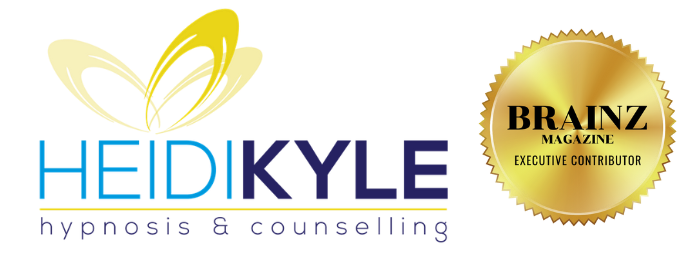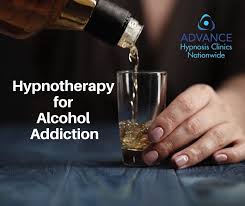I receive many enquiries about alcohol. Partially this is because my name pops up a lot as I have an interest and history in working with rehabilitation and partially because of being a hypnotherapist and hypnosis is often used as a last resort for people who have tried everything to stop or control drinking but without lasting success.
I often receive enquiries from families of potential clients who are desperate to get help for their family member. They may have tried interventions, rehab, medication and many other techniques but alas their loved one is still drinking. I have personal experience of over 15 years of trying to “save” a family member myself so I know first hand the pain my clients and their families are experiencing.
Many years ago I attended a seminar given by the head of one of Johannesburg’s top rehabs. He started the seminar by asking the audience “do you think if we knew the damage alcohol causes and how addictive it is we would have even allowed it be licensed in the first place?” He then went on to talk about the person who is addicted and the substance itself that is highly, highly, highly addictive. That was such a thought provoking way to look at alcohol.
I get many people who are beating themselves up about their lack of “willpower” when in fact alcohol itself is a highly addictive substance, with many other addictive ingredients mixed with it (e.g sugar). It is a substance that for many people is going to be the most available and the quickest way to relieve low feelings. Conversely, alcohol is highly socialised and associated with “having a good time” or a party or other enjoyable social event. All these factors make it a potent mix. Many people who are trying to stop drinking will avoid socialising as the temptation is just too much. Alas, they often become lonely and will succumb again.
Loneliness is a key issue for those struggling with alcohol and it has several strands worth mentioning. First, there is the loneliness associated with being a bit drunk when you are socialising, it’s difficult to connect and understand what the other person is saying when you have your senses befuddled. Many people who habitually drink feel lonely because of this lack of connection. It’s the reason many successful former drinkers find a great sense of energy and purpose in charity work, hobbies, etc.
Another strand of loneliness for those drinking problematically is that eventually most people in their life start relating to them as an alcoholic. This is sadly true for all addicts. Their parents, spouses, children, friends, family members, colleagues etc all relate to them as “having a problem”. As a result of so much energy and focus from others going into the “problem”, the poor person who is at the heart of the problem feels like their real selves are overlooked and its hard for others to relate to them apart from the alcohol issues. This is a desperately lonely experience. This often drives the drinker back to drinking and their drinking mates and the lack of meaning and not connecting with real loved ones drives more drinking and the cycle just goes on and on and on. Nothing is sadder and robs more potential than long term addition, especially to alcohol.
Alas, another sad aspect of alcohol and loneliness is that after a long period of excessive drinking one really does start having mental problems. This can manifest in a sense of unreality, memory loss, losing items, being late, saying strange things that don’t make sense to others, being unreliable, missing work, disorganisation, acting crazy while being drunk, sending weird messages or phoning people and saying embarrassing things. All these things cause loved ones to stop taking them seriously which drives even more loneliness and disconnection and more drinking. When loved ones become suspicious of the amount of alcohol being consumed, the drinker will often go covert and hide their drinking and this drives even more isolation, lying, disconnection and being deceitful, which causes relationship problems.
So how can hypnosis or counselling help? When I am working with a person who wants to focus on alcohol I always use a combination of counselling and hypnosis. This is because alcohol addiction, like all serious addictions, needs to be treated with time and great care and I find that giving the client time to explore some of the aspects of their use sets them up beautifully for the hypnosis component. I use a reflective approach and one of the first things we start to work with is the immense sense of loneliness that many chronic drinkers feel. We identify safe people and places initially that the client can start to work with or socialise with. There is a surprisingly short period after stopping that clients need help before they restart their lives.
Hypnosis is so effective for alcohol use as we can give direct suggestions around behaviours, we can do habit disrupters which can get the client started and see some results fast, we can visualise the end result of the behaviour in hypnosis in a very real way. There are many ways hypnosis can help with the symptoms of alcohol addiction.
However, the best way that hypnosis helps is that we will uncover and deal with the underlying cause of the behaviour. Many people become addicted to this highly addictive substance in their teens and early twenties. Its the partying as well as the need to be accepted that many young people fall prey to. Most young people will stop at some point but sadly for many this is only the beginning. In hypnosis we can uncover where those feelings of insecurity came from, perhaps feelings of being unloved or unwanted by important figures (eg. parents) and we can resolve them which takes a lot of pain out of the clients life. This gives a much broader perspective and drives immense change in all areas.
When I am working with issues related to alcohol we are looking at the habits and the social issues it has caused the client like loneliness as well as what started it in the first place. I find taking this two pronged approach can really bring good results for clients and start them on their journey to recovery. We want to uncover the symptoms as well as the causes.
A book I recommend to all my clients is Allen Carr’s “Easy Way to Control Alcohol”. This is available at Amazon and Takealot and is quite simply the best explanation of the socialisation of alcohol and how absurd it really is when you unpack it. Its funny and revealing and you will not think about alcohol the same way after you read it.
All addiction eventually becomes a spiritual journey for those who engage with it, its a soul journey and brings much spiritual growth – where are you in the journey?

